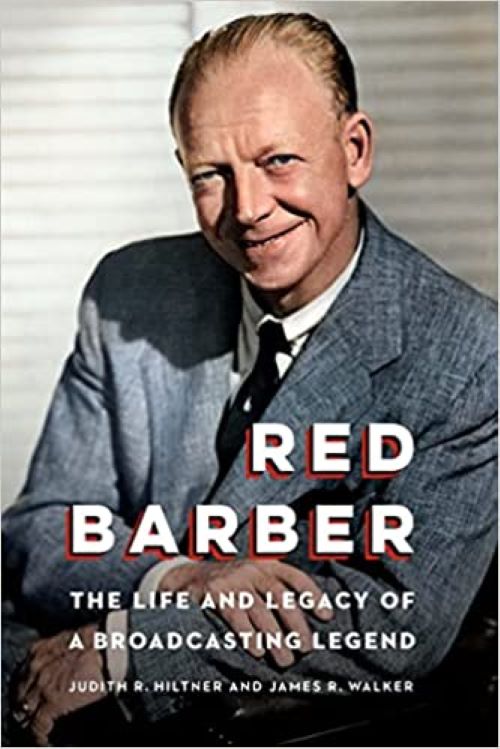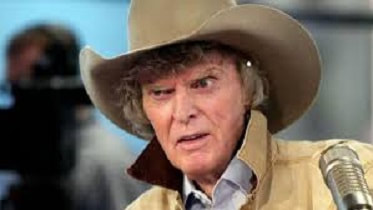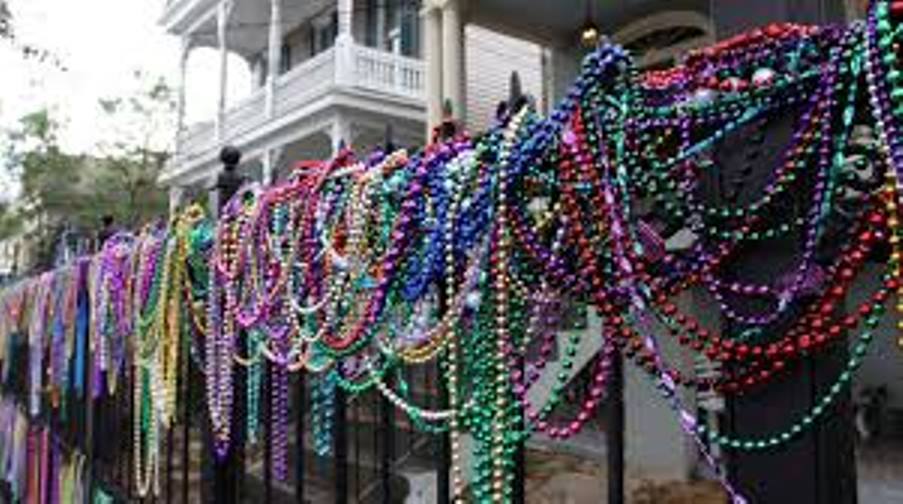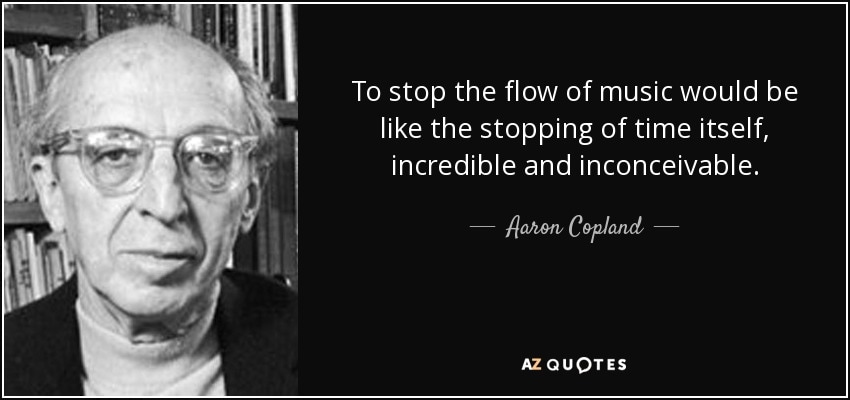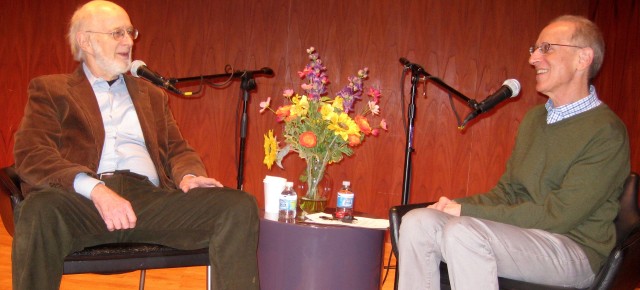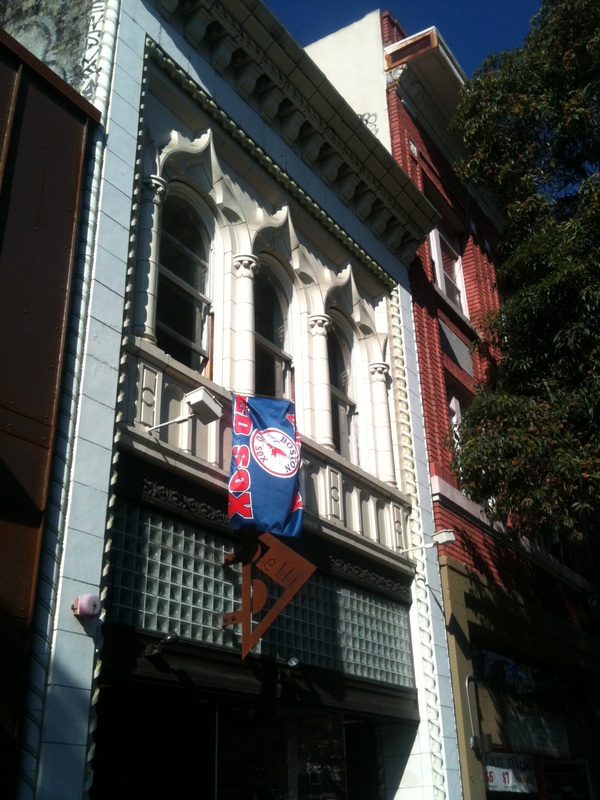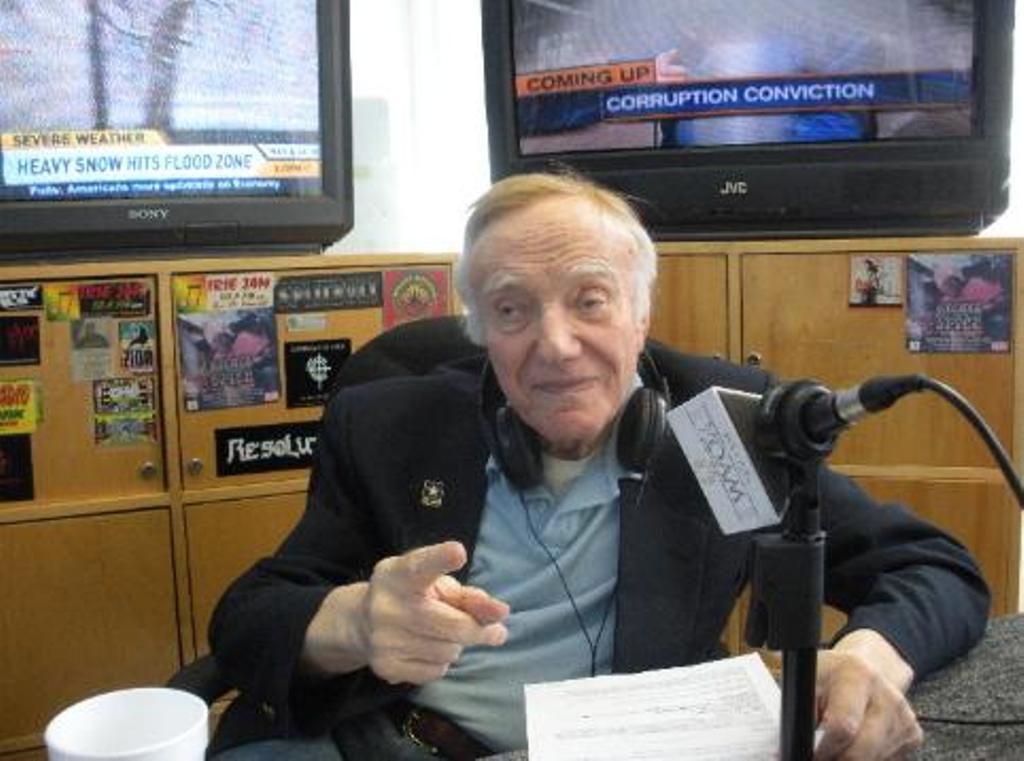|
On the same weekend, hiding indoors from the cold, we were fortunate to catch two live shows dedicated to music -- both bristling with talent and energy. The radio show was on Friday, a live performance from Carnegie Hall, featuring Anne-Sophie Mutter and the Mutter Virtuosi, her ensemble of young musicians. The show was broadcast by WQXR-FM, the gem of a classical station which has recently enlarged its program of live performances. Not only that, but the station often assigns two of its assets, Jeff Spurgeon and John Schaefer, to be co-hosts. (Spurgeon is known for his witty three-minute synopses of upcoming operas; Schaefer is known for his esoteric taste in new recordings.) The two were posted in the wings of the historic hall, as the musicians walked toward stage, nervous tension crackling through our Bose FM radio at home. Because the concert was on the radio, we could not see which of her bright gowns Mutter had chosen, to go with her energy (and, dare I say it, her beauty) but the music reminded us why Mutter has been one of the best violinists in the world, for four decades, since her mid-teens. Mutter was the driving force in pieces by Vivaldi, Unsuk Chin, and Saint-Georges, a composer of Senegalese ancestry, who was a few years older than Mozart. The co-hosts told us that Saint-Georges is the subject of a forthcoming movie, “Chevalier,” due to be released in April. After the break, Mutter led the ensemble through a bristling version of Vivaldi’s “Four Seasons,” and then the audience (this was, after all, Carnegie Hall) was treated to three encores. Finally, the musicians filed off the stage, punctuated by shoes scuffling and satisfied fragments of chatter. Schaefer likened himself to a sports broadcaster in a clubhouse, watching and interviewing athletes after a good performance. Mutter herself stopped and gave a proud baseball manager’s critique of her players, generous with her time for Spurgeon and Schaefer. In our living room, my wife and I applauded – for the leader, for the ensemble, and for the two hosts. Bravo, WQXR. Bravo! *** Two evenings later, we found a warm corner in our house to watch the Grammy awards. We are acutely aware of being, how can I say this, out of it. We don’t know the contemporary pop music that our kids and grandkids choose, but my wife has been an early fan of Adele, and I had heard that Stevie Wonder and Smokey Robinson were on the card, and that Bonnie Raitt was up for a few awards. Quite enough. We marveled at the star power of Lizzo and her group -- "Big Grrrls" – and we could detect the intelligent sizzle from Taylor Swift – and I wondered why the dynamic singer from Puerto Rico is named Bad Bunny – and we frankly didn’t think Harry Styles has much of a voice. Or does that matter?
But Stevie Wonder had the same impact that he did 50 years ago when he was “Little Stevie Wonder” – and Smokey Robinson could still rock. When Grammy-winner Kim Petras announced that she was the first trans woman to win an Oscar, I could not help but wonder what Gov. DeSantis of Florida – that scowling, ignoramus latter-day George Wallace wannabe -- was thinking, if he was watching. Will he ban the Grammys next year? Or CBS itself? Then came the spectacle – an anniversary celebration of hip-hop – 50 years? Really? A lot of gents with attitudes and costumes, names and faces I sort of recognized, came bounding onto the stage, chanting things that merited a quick and frequent network finger on the bleep key. Frankly, I was spellbound by the procession. Wish I had somebody to explain who they were and what they stood for. But…but…I liked them. Keep bouncing, guys. Beyoncé arrived late. The word was that she got stuck in LA traffic. I didn’t believe it for a minute. Beyoncé merits a squad-car escort with red-lights flashing. Late is fashionable. Beyoncé is fashionable. She can do better than that excuse. The Grammys honored dozens of music people who passed in the last year, starting with a sweet tribute to Loretta Lynn by Kacey Musgraves, singing her signature, “Coal Miner’s Daughter.” My whole family, watching here and there, pinged its approval and why wouldn’t they? Auntie Loretta invited me to help write her autobiography—and put our three kids through college. Thank you, darlin’. Nearly three hours into it, First Lady Jill Biden came out to present the award for the best song. The announcement seemed to legitimately stun her fellow septuagenarian, Bonnie Raitt, who somehow managed a kind and coherent acceptance speech. I have been a fan of Raitt for decades, particularly for her “Road Tested” double album -- one of the most played albums on my iPod – with heart-touching songs like “Longing in Their Heart” and “I Can’t Make You Love Me” qualifying me as a flat-out Bonnie Raitt groupie. As poleaxed as she seemed, Raitt found the grace to mention John Prine, her friend who died of Covid nearly three years ago, who wrote the song “Angel from Montgomery,” on that same “Road Tested” album. Bonnie Raitt, thanking John Prine. With an hour to go on the Grammys, I clicked off the tube. Quite good enough for me on this long, cold and highly musical weekend. Suzyn Waldman speaks Bostonese. Chris Russo speaks Rabid Canine. Congratulations to both icons of the New York ear (and head, and heart) who have just been voted into the Radio Hall of Fame. Their endurance has demonstrated the power of the spoken (or sung) word, for people driving a car or working out or just lazing in a chair. Radio lives. And Suzyn Waldman and Chris Russo have endured for decades, from their early days on WFAN. Waldman is the radio compañera of John Sterling, the long-time play-by-play mainstay of Yankee games. Sterling, bless his heart, provides shtick and nicknames and operatic exaggeration to back up his long career of calling games. Suzyn Waldman (from Newton, Mass., and Simmons College; but you could hear that) had an earlier career in musicals – most notably playing Dulcinea in “Man of La Mancha.” Then she gravitated to talking about sports and was hired by WFAN. Was she a novelty act? She blew up that stereotype by doing what the best reporters do, on any beat. She hung out. She asked questions. And she won the respect of players, managers, coaches and the informed beat writers. From her time in the clubhouse, she knew what player was favoring a sore leg, or was in the doghouse, or had a weakness for a slider. The listener came to rely on her commentary, always politely but authoritatively following Sterling’s calls. Plus, she can follow the fickle bounces in distant corners of a stadium. Yankee fans soon realized: Suzyn Waldman knows her stuff. Not only that, but Waldman became such a moral force that she brokered a reunion between George Steinbrenner and Yogi Berra, who rightfully harbored a grudge against The Boss for having fired him. Blessed are the peacemakers, like Suzyn Waldman. Christopher Russo materialized as a sports reporter on the radio spectacle called “Imus in the Morning” – dominated by the equally brilliant and vicious Don Imus. Your ear could not miss Russo’s babbling patter that resembled Daffy Duck in the cartoons. When the station morphed into all-sports WFAN, he was paired with the opinionated Mike Francesa. (Imus called Francesa and Russo “Fatso and Froot Loops.”) In 1991, I wrote a column about Russo in which I unearthed his secret life: his mom came from England and was reportedly horrified by his diction; he had attended colleges in three different countries – England, Australia and the U.S., and before that he had attended a private school in New York State. Away from the live microphone, I detected a pleasant, centered, educated and ambitious kid who had taken speech therapy and did not mind admitting it. My headline (columnists got to write their own headlines in those days) was: “Mad Dog Is a Preppie.” He and Francesa were wired, babbling about game strategies the night before or pending trades or players who had popped off; I will admit there were times when I needed to see if the odd couple could flush out an owner or a commissioner or an agent. Nobody wanted to be hectored by Mike and the Mad Dog. It was compelling radio, in its way, as long as they lasted together. These days Russo is on Sirius. Sorry, a lot of new things like Sirius and podcasts are outer space to me. I’m a child of radio. I can still remember Edward R. Murrow scaring the hell out of me with his war dispatches from London when I was 4 and 5, and when we managed to survive that war, I found Arthur Godfrey’s jovial variety shows and Red Barber’s erudite calls of the sainted Brooklyn Dodgers. I discovered music on the radio – from Crosby and Sinatra to Aretha and Bob Marley and The Band and Dolly Parton, disk jockeys from the long-ago Jack Lacy on WINS-AM to William B. Williams on WNEW-AM (until I heard him destroying a vinyl record, live, on the air, by some new shaggy-haired kids from Liverpool.) Radio: Garrison Keillor, NPR, Jonathan Schwartz and Peter Fornatale on WNEW-FM, the doomed classical station WNCN, and nowadays an upgraded WQXR-FM particularly Terrance McKnight from Morehouse, 7-11 PM weeknights, the eclectic John Schaefer on WNYC and the great interviewer Brian Lehrer, WNYC, both AM and FM. Baseball? It was invented for the radio, or vice versa, never more than when the grubby forces of Major League Baseball condemn Mets or Yankee games to other networks. Radio is a vibrant medium, all on its own – and Suzyn Waldman and Chris Russo are deservedly in the Radio Hall of Fame. I worked myself into a tantrum last Friday when Max Scherzer was making his first start for the Mets. I wanted to see the game, plus hear what the Mets’ knowledgeable TV triumvirate of Cohen-Hernandez-Darling had to say about it. Then I found out that Major League Baseball had farmed out this game to some Apple outlet, with unfamiliar broadcasters. Yes, the very same Rob Manfred operation that now welcomes gambling commercials. (Coming next year: commercial patches on uniforms. Baseball goes Nascar.) I knew enough to instantly switch to Good Old Howie Rose, of course – baseball is a great sport for radio, with lifers like Rose -- but people who could not access WCBS-AM radio (upstate New York, for example) were stuck with the gimmick -- noisy strangers hawking silly “probability” statistics but clueless about the daily workings of the Mets. Baseball clearly has no shame. * * * Totally by coincidence, I have been reading a biography of one of the great baseball broadcasters of all time, Red Barber, who introduced my brain, my heart, my ears, to the Brooklyn Dodgers, starting in 1946. My earliest baseball memories are riding around Queens with my father, with Red Barber on the car radio, and listening to night games in our back yard, via a radio that occasionally emitted shocks from a faulty connection in the garage. Red Barber’s melodic southern accent calling a Jackie Robinson foray on the third-base line, on a warm summer night, outdoors? The best. Later I got to know Red in the Yankee Stadium press room, in the 60’s, after he had switched over to the “big ball park in the Bronx” – his alliteration, not Mel Allen’s. Walter Lanier Barber had respect for the game itself, and for the intelligence of the listener, and for the rules and codes of life. I did not know, back then, that Barber was also a lay preacher, but what I did know was that he stood up for the right thing, by his standards, and he offered a measured response when things did not go the Dodgers’ way. He was not an overt rooter, did not refer to ”we,” did not make excuses for Dodgers. On the final day of the 1950, the Dodgers had Cal Abrams thrown out at home, and then lost the pennant on a home run by Dick Sisler. I can remember listening in my family house, as Barber delivered what I took as a sermon of sorts, that life would go on, there would be another season. It helped me get through another Yankee World Series – a piddling issue, to be sure, but he gave hope; there were more important things in life. Now I know Red Barber better, through a valuable new book, “Red Barber: The Life and Legacy of a Broadcasting Legend,” by Judith R. Hiltner and James R., Walker, published by the University of Nebraska Press, which often issues serious sports biographies and histories. Red Barber deserves this adult biography. The book takes me to Barber’s southern childhood, his hard-working father and idealistic mother, a very segregated world, and even Barber’s youth as an entertainer doing – gasp – minstrel music, mimicking stereotypes of Black music. As the young and very ambitious man, morphed into a broadcaster, he was lucky to be instantly taken with a young nurse named Lylah Scarborough, also very southern, but with a difference: she had played with Black children, and had treated Blacks in her profession. The book shows how Miss Lylah prepared Barber to adjust to the advent of Jackie Robinson in 1947, and also to enjoy the culture of the city. He never denied it: he was a work in progress, with help from his mother and his wife. Barber broadcast many sports, eventually on national networks, but his specialty was baseball, first in Cincinnati, then in Brooklyn. He had a code: he could drop folksy sayings (“rhubarb,” “catbird seat”) in his southern cadence, but he had to remain an adult on and off the air. He took his cue from his father, fighting for better contracts; he also learned from Branch Rickey, the innovative, educated and religious boss of the Dodgers. Barber knew he was speaking to Dodgers’ fans but he did not root – was not a “homer,” in the press-box slight. He also did not go along with certain broadcasting ways: calling the 1947 World Series, he told the national audience that Bill Bevens of the Yankees had not given up a hit with two outs in the ninth. The superstitious blamed Barber after Cookie Lavagetto broke up the no-hitter but Bevens assured Barber, heck, it was Bevens’ own fault for walking so many hitters. When a new owner named Walter O’Malley took over the Dodgers, Barber continued to tell the truth. Once he informed the radio audience that the opposing infield was playing deep for a double play because Carl Furillo, the Dodgers’ stalwart right fielder, was notoriously slow. Any true fan knew that already – the great Dick Young had labelled Furillo “Skoonj,” a slang Italian reference to snail -- but O’Malley dropped a snide remark on Barber the next day. Not long afterward, Barber was calling Yankee games, remaining his own man, once noting the sparse crowd (413 paid) for a late-season Yankee game. More broadly, as the book emphasizes, Barber’s austere presence became out of style. Time to move on. Barber spent his final decades back in Florida, still a national figure, from his Friday morning NPR “Morning Edition” conversations with Bob Edwards, plus writing and speaking and eventually caring for Miss Lylah when she developed Alzheimer’s. He died in 1992 and she in 1997. Sports broadcasting has continued to evolve. I would submit that the booth of Cohen-Hernandez-Darling bristles from the individual gifts of all three, starting with honest calls from Cohen and his enlightened questioning of his booth mates -- former ballplayers, a genre that Barber disdained. Hernandez offers the perspective of a fiery on-field leader and Darling offers the perspective of a Yale star who does his homework. My guess is that Red Barber – who was always looking for another protégé like Vin Scully -- could have worked with all three of them. Baseball fans will enjoy this serious biography of an evolving adult who set a high standard for broadcasters, players and fans. Red Barber could get excited. Here is his classic call of the game-saving catch by Al Gionfriddo in the 1947 World Series -- watch Joe DiMaggio make a rare show of frustration. Barber's exclamation of "oh....doctor!" was not a stock phrase of his. He just blurted it.
The terrible stuff is all over the news but baseball, as always, is a welcome diversion. It was on television and good old the radio this weekend. Pick your team; mine is the Mets. I make no apologies for the hours I spent following Good Old Howie Rose on the radio for two days and the Three Amigos on the tube on Sunday. The Mets presented their first exhibition Saturday, with Rose back in the booth after shutting down last season because of illness. He sounded himself in his haimish Queens tones (so familiar to my central Queens ear.) Rose and his radio sidekick, Wayne Randazzo, noted that spring training was delayed to mid-March as the hard heads of Major League Baseball nearly throttled their thing, but now MLB is going after all that good, clean gambling money, while clubs are playing catchup – opening days in less than three weeks. As the Mets played the Washington Nationals in West Palm Beach, Rose and Randazzo discussed the big change in rules this year – the National League has gone the way of the designated hitter after 49 years of the gimmick solely in the American League. (The New York Times has an interview with Ron Blomberg, the first DH for the Yankees back in 1973. Blomberg likes it, and why not? It is his claim to fame.) Somewhat to my surprise, Rose, 69, said it was time for “traditionalists” to accept the DH. Most pitchers can’t hit, anyway, and even those who can are in danger of being injured by putting their hands and wrists and elbows in the way of a wayward pitch. The deGrom Argument. Jacob deGrom has been my best reason for keeping the tradition, based on the good hitting pitchers over the decades – Don Newcombe of my Brooklyn Dodgers, Bob Gibson, Don Drysdale, Tom Glavine, Madison Bumgarner. (Shohei Otani, the slugging pitcher, is not just from Japan; he is from some other planet entirely.) However, deGrom is also the best argument for getting elite pitchers out of harm’s way. He was an infielder in college and is a lithe fielder on the mound, and he can also bunt and swing for power. He kept getting hurt last year, ending his season way too early, possibly because of the stresses of hitting a fastball with a wooden bat. Who wants to see Jacob deGrom’s career end early? Howie Rose was spot-on, in the opening innings of the first radio exhibition of the spring. This traditionalist gives up. I picked up the Mets’ Sunday game on television, from their camp in Port St. Lucie – Gary Cohen, Keith Hernandez and Ron Darling, warming up for their 17th season together – so savvy, so entertaining. Their show showed a clip of Lindsey Nelson doing an intro for the Mets’ historic first camp in 1962, and praised the earlier Three Amigos, Nelson and Bob Murphy and Ralph Kiner. The current Amigos let us know winter was truly over by discussing the free agents who have moved around for salaries that seem unbelievable to me. They also discussed the legacy-killing act of Robinson Cano, who is back from a second drug suspension, the knucklehead. The Amigos also talked about how clubs have to prepare fast. Hernandez, that great first baseman, noted that Francisco Lindor has a bad habit of underarming his throws on slowly-hit grounders. They speculated whether Michael Conforto could still be signed for this season --- a really good point, since he seemed a victim of the Mets' organizational anarchy last year. And Cohen, who flew to San Diego to fulfill his winter gig with Seton Hall basketball, raved about the stunning double victory by fellow jersey school, St. Peter’s.  Welcome Back, Howie Rose Welcome Back, Howie Rose True confession: just like the ball players, I am not ready to go nine, so I dozed in mid-game and caught the last segment on the radio with Good Old Howie Rose. He was talking about the deterioration of most of the Mets’ hitters last year, as the old-time batting coach, Chili Davis, got fired, replaced by two minor-league coaches, who, according to Rose, were undercut by analytics types going where they don't belong – buzzing in the ears of major-league hitters. That won’t happen again, Rose said, and I hope he’s right. In the final innings, Rose noted that the new manager, Buck Showalter, re-arranged the batting order of the anonymous late-inning subs, and imitated Bob Murphy, who used to explain the machinations of Casey Stengel or Bobby Valentine by enunciating, “I’m….sure…he…has…his... reasons.” “Come on, April 7,” Rose urged, referring to Opening Day, when the March of the Subs will no longer happen. He observed the fans, making their getaways into the choke point on the dreaded Peacock Blvd. Randazzo said he knows a short cut, albeit illegal, through a nearby gas station – the late-inning preoccupations of spring training. All seems normal. Welcome back, baseball. ---- * -- Homage to the Terry Cashman standard. And for all radio baseball fans: Back in the day, when sports columnists were a daily presence, my job description included having an opinion on the national college football championship. Often, this entailed being in warm places on New Year’s Day, which is the best thing I can say about covering the loopy methods of judging teams with differing schedules playing in different bowl games. Bowl games got me to Pasadena or Miami. What can I say? Now that I am retired, I pay no attention to any form of football. Instead, I am free to follow another highly imperfect ratings system, closer to my heart and ear – the annual vote for the best classical music, as conducted by the invaluable station emanating from my home town (and live on the Web) WQXR-FM, 105.9 on the dial. The station has been conducting this poll since the mid-‘80s, asking listeners to rank their favorites. The results are played in the annual countdown in the last week of the year, generally reflecting the programming of the station – the old favorites, often presented one movement at a time. During the countdown, the station also conducts a running blog (results not updated as quickly as listeners would like) including commentary from the faithful in distant states and foreign lands. Many of respondents are passionate about wanting" More variety! More medieval music! More Reich and Glass! More music by African-American composers! More music by women! Plus, there is the rampant suspicion that some Gilbert & Sullivan supporters pack the ballot box, just like voters in some towns and states I could name. And some listeners question whether Gilbert & Sullivan is actually classical music. I pass on that one. My feeling is, the annual countdown reflects the tastes of people who support WQXR and live classical music in New York. More power to them. Still: every year I make a small list of music I play at home, and I hope some of it will slip into the countdown. As my friend Vic Ziegel, who introduced me to the strange charm of the racetrack, used to say about the track announcer: “At least give my horse a call.” In the past few couple of years, I have been trending toward chamber music at home because it is self-contained, providing a welcome alternative to the toxic earworms on the air waves. --In an ugly time, I have become infatuated with Ravel’s “Pavane for a Dead Princess,” for its beauty and pace and dignity. --I often choose “Butterworth/Parry/Bridge,” its three composers taking me back me to lazy summer days, visiting a friend in the Brecon Beacons of Wales. -- I was rooting hard for something by Florence Price, the composer whose work is often championed by the wonderful Terrance McKnight on his evening gig, not just in Black History Month, either. --Because we are blessed to have two good friends comprising half of the New Zealand String Quartet, we have their works by Bartok, among others. -- But the work I was really hoping for was Sir William Walton’s Violin Concerto, performed by Kyung-Wha Chung. I still remember the first time I heard it: I was a news reporter in the late ‘70s, driving to meet some nuns in jeans and sweatshirts who did the Lord’s work in the South Bronx. But when this stunning piece appeared on my car radio, I sat and listened for the full half hour. Alas, this beautiful piece is not easily found on vinyl or CD – and is not in the WQXR top 120, either. Not even, in racetrack parlance, a call. The 2019 list does include many things I love, including a few pieces by Erik Satie, Samuel Barber’s “Adagio for Strings,” and – No. 4 in the poll -- Dvorak’s “From the New World.” The older I get, the more I appreciate Dvorak, for his music and also for his love for two worlds, Bohemia and America. I missed it live, but there on the list at No. 68 was a very modern already-classic, "The Armed Man: A Mass for Peace," by Karl Jenkins, first performed in 2000, which I heard for the first time in the past year. However, the piece that really knocked me out was No. 109, Gustav Mahler’s “Symphony No. 8 in E-Flat, Symphony of a Thousand,” by the San Francisco Symphony, Michael Tilson Thomas conducting, with wonderful soloists and choruses. It made me stop what I was doing and just listen. At the end, Beethoven placed six in the top 10. I have no quarrel with the selections because the voters care about “their” music. It’s up to us to seek out the music we love, and play it, and pay for it, early and often. Happy New Year. * * * The current results: https://www.wqxr.org/story/wqxr-classical-countdown-2019/ Plus, check out the blog with informed and passionate comments by listeners: . And for comparison, the two most recent results. https://www.wqxr.org/story/wqxr-2018-classical-countdown/ https://www.wqxr.org/story/wqxr-2017-classical-countdown/ Say what you will about the I-Man, this alternately cruel and shy character who passed Friday at 79, he kept me alive many years ago.
I had paid him no attention until he popped up on the new sports talk station, WFAN -- 660 on the AM dial – in the late 80’s. Most of the station was devoted to hard-core sports babble but his four hours in the morning – “the revenue-producing portion of the day,” I think he called it – was a snarling, sneering refutation of sports, plus music critiques and skits. One of the best things I have ever heard on the radio was a skit in which Princess Diana visits America to get away from that strange bunch she had married into. (I forget the name of the woman who portrayed Diana.) Somehow or other, Diana is invited to Imus’ home in Connecticut, for a hot-dog roast with real people, that is to say, the I-Man. She is so enthralled by his informality that she pleads for asylum, asking in a plaintive voice, “Please, may I stay here?” Oh, if only she had. Imus grew on me, with his frequent praise for his favorite musician, Kinky Friedman and the Texas Jewboys. He also acted as a one-man media critic of the noble knights of the keyboard back when newspapers and sports sections and columnists played to the snarky taste of the New York region. He was vicious toward his station mates, calling Mike Francesa and Chris Russo “Fatso and Fruit Loops.” He derided his literary agent and consigliere, Esther Newberg, referring to her as, of course, “Lobsters.” He regularly berated the plugged-in sports columnist of the Daily News, Mike Lupica, and sometimes when he had nothing else to do, he picked on me. (Let it be noted that Lupica and I are clients of the sainted Ms. Newberg.) One time Imus relayed a new item about an elderly gent who was left, in a wheelchair, I believe, by his guardian at some rural dog track. This became the Imus standard for irrelevancy, for being past it. He often would ridicule my masterpieces and state the obvious: “Dog-track time for Vecsey.” One time my sister Janet rang up the station to blast the I-Man and he put her on the air, and was oh, so civil to her. That was the I-Man, a human mood swing. I met him a few times, hanging out in a baseball press box, making no fuss. In person, the radio tough guy would softly say hello and kind of look sideways at me. How did Imus save my life? My wife was on a trip somewhere and I thought it made sense for me to drive our car from south Florida to Long Island – straight through, overnight (with a couple of 15-minute naps at rest stops.) I got near Baltimore, the sun rising, and to keep awake I punched the dial seeking Imus going on the air at 6 AM. But I was sleepy. Very sleepy. I could feel the car starting to edge onto the rough border of the inside lane. I righted the steering wheel and willed myself to stay awake. But I was sleepy. Just then, Imus began a tirade against a failing columnist who had just written another piece of foolscap. In his basso voice of denunciation and doom, Imus pronounced: “Dog-track time for Vecsey.” That got my adrenaline surging – who doesn’t like attention? – and I gripped the wheel and listened to Imus for the next four hours until the revenue-producing part of the day was over, and I got home, alive. * * * I’d like to say that my debt to the I-Man made me a listener for life, but that’s not true. He and his radio sidekicks increased their racial crap and their creepy comments about women until one day he made ugly comments about the mostly-black players on the Rutgers women’s basketball team, competing in the Final Four. That was it. I turned Imus off, and never listened to him again. In a way, Imus was a predictor of where we are today. However, unlike some public figures I could name, he appeared to be generous, to have a heart. According to the obituaries, the I-Man hosted young people at his Imus Ranch and raised funds for Iraq veterans, and his wife Deirdre has her own charity at a New Jersey hospital. It seems he affected thousands of lives – plus one sleepy driver, edging off the Interstate on a warm sunrise. * * * Here’s a treat: the NYT’s star, Robert McFadden, on the I-Man: https://www.nytimes.com/2019/12/27/arts/don-imus-dead.html It took a lovely post by a friend to remind me that Mardi Gras is about to morph into Ash Wednesday.
Bill Lucey, a writer and editor in Cleveland, puts out a thoughtful website about (a) baseball, (b) journalism, and (c) life itself. His post today is about how he should observe Lent this year. His examination of his faith should be read on its own, not in my paraphrasing: https://www.dailynewsgems.com/2019/03/the-meaning-of-giving-up-for-lent.html Lucey's article prompted me to recall Mardi Gras/Ash Wednesday from my own perspective, having been raised (and raised well) as a Roman Catholic. I know my two sisters and their families will be observing Lent. (We took two close relatives to our beloved Mama’s in Corona a few years back –during Lent -- and they had to pass up some of the glories of deli and pastry. Oy. That is faith.) Today’s post by my colleague prompted two memories: 1. As the oldest of five, I was fortunate to walk to church on some weekdays with my Irish-born grandmother, always in black. Sometimes she would take me to a luncheonette on Jamaica Ave., for breakfast after church – but maybe not during Lent. I don’t remember. (Kids, ask questions of your grandparents…and your parents. Get their views, their histories.) 2. My most vivid memory of Mardi Gras/Ash Wednesday is from 1971, when I was a news reporter for the NYT, based in Louisville. I had just covered my first coal-mine disaster, in Hyden, Ky., and was still reporting on it. On Feb. 23, however, I was in central Tennessee, covering a story on an army base. I had no clue about Mardi Gras until I had to wake up before dawn to drive across to a hearing in Eastern Kentucky. Barreling due east on the interstate, I messed with the radio dial (much more fun in the pre-digital age) and found a lively station – WWL, New Orleans, 50,000-watts. This post began as a memory of Lent, a spiritual journey, but somehow it is turning into a tribute to the great clear-channel stations of North America – the ones that would keep you going on cross-country drives. (Grand Ole Opry on Long Island on Saturday nights; one Phillies-Cardinals thriller all the way out to Chicago.) https://www.radiodiscussions.com/showthread.php?617480-50-000-Watt-Stations-on-North-American-Clear-Channel-Frequencies This time, pre-dawn on Feb. 24, 1971, I listened to the overnight DJ on WWL raving about Mardi Gras, which was slowly winding down on the littered and sodden streets of New Orleans. He talked about the beads, the drinks, the costumes, the food, the pretty women, the people leaning off their elegant balconies in the French Quarter, shouting and personifying the slogan: “Laissez les Bon Temps Rouler!” And there I was, in the dark, on I-40, heading to a hearing about poverty and neglect in Appalachia, taking in reports of the last bursts of sensuality in New Orleans. Mardi Gras turning into Ash Wednesday, mile by mile. That was Mardi Gras/Ash Wednesday, 1971. Now, stirred by Bill Lucey in Cleveland, I have to figure some way to honor Lent. Thanks, man. One of the most heinous things about living around New York City is crossing the George Washington Bridge onto the Cross-Bronx Expressway. Abandon all hope, as Dante warned.
It’s even bad when Chris Christie’s little pals are not monkeying with the traffic lanes. On Saturday evening, we encountered a cloudburst and a breakdown in the center lane, right around Webster Ave. in the Bronx. Thousands of assassins and cut-throats were doing evil things at the wheel, hacking their way toward Long Island or New England. But I did get by. My wife worked the FM tuner and somehow found a Grateful Dead hour on wonderful WFUV from Fordham University. In short order, David Gans played one of the most ethereal of all Dead songs, “Attics of My Mind,” sung not by Jerry and company but by children from the Barton Hills Choir of Austin, Tex. Apparently, the children perform Dead songs as well as other familiar pop tunes Their harmonies are amazing. They enunciated the Jerry Garcia-Robert Hunter lyrics so sweetly. They mellowed me right out to where I could withstand the assassins and cut-throats of the Cross-Bronx. When I got home I downloaded the video of the Barton Hills Choir (above.) I don’t know much about them or their repertoire but their faces and voices are so sweet. Can’t see them covering “Mexicali Blues” or “Pride of Cucamonga” or “Me and My Uncle.” But late Saturday night, in a cloudburst, with a middle-lane breakdown, surrounded by thousands of cut-throats and assassins right out of a Dead classic, these children got us through. We did survive. . Catering to the Thumb Generation (of which I am a fringe member), Major League Baseball disappeared a game from television on Wednesday.
The business that still charmingly thinks of itself as The National Pastime has a new partnership with the dippy kid in the gray t-shirt, Mark Zuckerberg. I think that means all information on Mets Nation -- all we scruffy, gauche losers who root for one miracle every generation – is now in the hands of Comrade Vladimir in the Kremlin. Facebook was already chums with something called Cambridge Analytica which seems to have been in cahoots with various apparatchiks during the 2016 election including the possible next national security advisor, Mad Dog Bolton. Baseball is letting the t-shirt guy put the occasional major-league game on Facebook so people can like or dislike what transpires on the field. The price for one MLB game a week is $30-million for the season – that’s what matters, isn’t it? In real life, it’s not that hard to tell if baseball fans like or dislike something. Just the other day, Giancarlo Stanton struck out five times in his Yankee Stadium debut and Yankee fans faithfully gave him something called a Bronx Cheer. Schnooky old baseball managed to distract from Wednesday’s Mets-Phillies game in Queens. James Wagner of the Times appropriately wrote an entire sagacious article about the t-shirt guy’s coup rather than the Mets’ bullpen or the clutch hit. (Tyler Kepner did write a column about the game itself.) What with all the teeth-gnashing about baseball’s sellout, it seemed the game itself vanished into the dark hole of likes and dislikes. Not true. I caught most of that game on this strange medium called radio. The Mets’ game was on WOR – 710 on the AM dial – described by Howie Rose and Josh Lewin. Rose, aware the game had vanished from the tube, offered the observation, “I think radio is here to stay.” Home-town fans get used to their TV and radio broadcasters. When the national broadcast pre-empts a Met game, I opt for radio. Mets fans don’t need national drop-in experts telling them stuff they already know. Plus, the sellout by #ShamelessMLB on Wednesday meant that Mets-TV addicts were forever deprived of possible weird dialogues such as the one that ensued during Thursday’s game in Washington, with Gary Cohen monitoring the banter between old teammates from 1986, Keith Hernandez and Ron Darling. Darling to Hernandez on Good Old SNY: Were you this funny when we played together? You’re pretty funny. Cohen: He was the Prince of Darkness back then. That's what Mets fans expect – not twiddling of thumbs. At least the t-shirt guy hasn’t sold all of baseball to Cambridge Analytica. (Memo to Mark Zuckerberg: when you are hauled into Congress next week, go find a suit. Play dressup.) * * * Speaking of Queens and baseball, my friend-the-writer, Rabbi Mendel Horowitz, has written about following baseball in Israel during Passover: Enjoy: http://jewishjournal.com/opinion/232675/why-is-this-sport-different/ Aaron Copland died on Dec. 2, 1990.
We were driving north from Florida to New York on one of those all-nighters we used to pull. As we drove through coastal Georgia and South Carolina, we listened to works by the great American composer, plus critiques of his career. Past Brunswick, past Savannah, past Charleston, the radio played ballet scores like "Billy the Kid" and "Rodeo" and "Appalachian Spring" as well as concert pieces like "El Salón Mexico" and "Fanfare for the Common Man" and "Lincoln Portrait." When one station crackled out, just a slight adjustment produced another station, somewhere from 88 to 91 on the FM dial. All that evening, we scarcely missed a note of Copland’s musical references to cowboys and immigrants and martyred heroes. We were connected to the culture of our entire country, not just Big Town but all the places where classical music touches the heart, the brain, the soul. I count 17 NPR stations in Georgia and eight in South Carolina. We know this country well enough to realize that it’s not all political bombast and preachers and country music and rock. As we drove north, in the regional cities and small towns and way out in the counties, people were driving or reading or even falling asleep to the work of the master from Boys High in Brooklyn, who never attended college but instead composed music. This synchronized symphony along Interstate 95 was no accident. It came through a chain of National Public Radio stations, bringing classical music and news and features to all the people and subsidized in part by tax money, via public officials who have recognized, over the years, that pipers (and composers) must be paid. Now National Public Radio is under siege, its subsidies threatened. The new regime seems to regard enlightened talk and classical music to be frivolous, even seditious. In New York, we read that subsidies by wealthy and middle class patrons may keep our two radio stations going. This means we can count on Brian Lehrer switching intellectual gears every weekday morning on WNYC-FM; we can expect Terrance McKnight to keep on playing his eclectic swath of classical music on WQXR-FM. We’ll be all right. But in so many other places, the high end of talk and music is threatened. There are worse things, more dangerous things, worth hectoring your local member of Congress. But In the midst of all the other causes, people need to stand up for National Public Radio, all over this land. The invitation was an honor – to be interviewed by Randy Cohen on his radio/podcast show, PersonPlaceThing.
Everybody knows Cohen, the original Ethicist in the New York Times magazine, who set such a high bar of being informed, quirky and timely. Now he produces his own show, asking people to discuss their favorite person, place and thing. His invitation included a podcast of his interview with Judy Collins. On the same list as Judy Blue Eyes? Count me in. Cohen’s show took place at the beautiful library in Port Washington, L.I., in front of friends, neighbors and family, facilitated by the ever-personable Jessica Ley. For my choices, I could have gone stone serious but I decided to omit family, religion and politics. Better to go with the first answers that popped into my head – stuff that sustains me, at this stage in my life, outside my deepest ties. Cohen did a great job editing nearly an hour of banter into a tight 25 minutes but I do have a footnote to each category: Person: The tense original first chapter to which I refer is about a confrontation between Confederate soldiers and two teen-age brothers on a road leading to Gettysburg. The famous editor was flat-out wrong to cut it. The author was right. That scene, now restored, sets up the entire novel. Place: I love my adopted home town but I also love my home borough of Queens. Living half an hour east is about as far as I can stand. That helps explain my choice. Thing: Cohen’s subtle editing cut out the fact that he is far more accomplished than I am with my chosen implement. I have immense respect for his weekend jaunts. Nuff said. I’ll be proud if anybody wants to listen and respond in Comments. * * * The link to the show: http://personplacething.org/episode-161-george-vecsey/ The show will also be broadcast in New York on Tuesday at 1:30 PM on WNYE, 91.5 FM, and more broadly Friday night at 10:30 PM across WAMC Northeast Public Radio. You can also download it free at iTunes. (This very site seemed to have vanished on Nov. 6; at moments like that, one realizes how fragile all this geekiness is in the hands of innocents. Maybe it will re-appear on its own.)
Baseball has vanished to the other side of the moon, not to reappear til March. My greatest memory from the 2013 World Series goes beyond the joy of watching Ortiz and Lester and Pedroia and Uehara -- exuberant phenomena that even a non-Red Sox fan could love. The best baseball note of October came from David Waldstein of The New York Times as he tried to outrun the ubiquitous KMOX on Tuesday night. He got south of Memphis, into Mississippi, and that landmark AM station was still going strong, outlasting the game itself. Here’s the link: http://www.nytimes.com/2013/10/30/sports/baseball/trying-to-outrun-the-long-reach-of-cardinals-baseball.html?_r=0 The part I loved about Waldstein's article was that it celebrated the holy union between baseball and radio, as good as ever, late in its first century. What fan has not learned to love the sport from an hour or two in the car, listening to great chunks of a ball game, epic or mundane? It’s one of the great relationships in American life – the ball fan with the gabby play-by-play broadcaster and color commentator. I have great patience with John Sterling of the Yankees because he fills that job description – a character, living memory, part of the act. I can recall some epic games in the car:
The car radio delivers amazing events. I remember driving before dawn from Nashville to eastern Kentucky, in 1971, listening to a New Orleans clear-channel station, I believe WWL, 870 on the dial, describing the final hours of Mardi Gras. I remember driving from the Detroit airport to Pontiac for a World Cup soccer match in 1994, listening to WFAN, 660 AM, for the madness in Madison Square Garden as fans watched the eerie O.J. Simpson drive along the freeway as it unfolded on TV. On drives on Long Island on Saturday night, I used to catch the Grand Ole Opry on WSM at 650 AM. But nothing suits radio better than baseball. It is now officially Off Season. If you pick up any ball games from now until spring training, courtesy of sun spots or time warps or dark holes, please let me know. Any great baseball car drives you can recall? Bill Mazer was a giant of sports broadcasting – and then his career kept going. Long after he was a sports maven in Buffalo and Milwaukee and New York, Mazer, as an octo-genarian, launched into a second career as radio general talk-show host.
We knew each other from the days when he described Cookie Gilchrist’s rushes and Henry Aaron’s home runs. Now, instead of recalling the great sports details (some would call them trivia), Mazer worked first for WEVD in New York and then for WVOX in suburban Westchester. Mazer, who died Wednesday at 92, was thoroughly admirable in his new life as he chatted about politics and medicine and education and anything else. I remember one time he had me waiting on the next line to babble about some sports theme while he finished up with somebody – as I recall, a brain surgeon. I was extremely impressed. Bill’s intelligence and curiosity had kicked in. He was able to guide the doctor into explaining the profession, and new developments in medicine. Bill did not need to assert his own memories of who pitched what game of what World Series. He asked wise questions and – believe me, not all interviewers are even adequate at this – he listened to the answers, and he responded to the twists and turns of conversation. He had his opinions. Once I launched sideways into a tirade about a political theme (no point going over it here) and I could tell he was quite unhappy with me. Still, he politely let me talk, and he politely offered his version, and we finished the chat civilly. (I don’t think he called me for a while, and that was fine, too.) It was not easy for Bill in his later years. He missed his wife, Dora, known as Dutch, who passed in 1996. She was a beautiful and serene lady who accompanied him to a lot of events, was a force in his life. Yet he continued to grow, with his actor son Arnie Mazer booking guests and running interference for him. Bill Mazer – like Bob Wolff, Roger Angell and Ray Robinson, ongoing nonagenarian giants and friends of mine – was a marvel. He became a role model for any of us who might want to re-invent ourselves. In the very long run, Bill Mazer was amazing. * * * For an appreciation of Bill Mazer’s career, please see the obituary by Richard Goldstein: http://www.nytimes.com/2013/10/24/sports/bill-mazer-a-sports-fixture-of-new-york-radio-and-tv-dies-at-92.html?_r=0 |
Categories
All
|





